IN THE THIRD JUDICIAL CIRCUIT OF FLORIDA
Administrative Order No.
2022-004
IN RE:THIRD JUDICIAL CIRCUIT MEDIATION PROGRAM - (Replaces AO 2009-001)
THIRD JUDICIAL CIRCUIT COURT OF FLORIDA
ADMINISTRATIVE ORDER NO. 2022- 004
Replaces 2009-001
THIRD JUDICIAL CIRCUIT MEDIATION PROGRAM
Whereas, the Third Judicial Circuit recognizes mediation is a confidential process whereby a neutral third party encourages and facilitates resolution of a dispute through an informal, non-adversarial process, with the objective of assisting the parties reach a mutually acceptable and voluntary agreement; and
Whereas, mediation can result in cost and time efficiencies to the parties and the court; and
Whereas, pursuant to Chapter 39, Florida Statutes, Chapter 44, Florida Statutes, Florida Rule of Juvenile Procedure 8.290, Florida Family Law Rule of Procedure 12.740, and Florida Rule of Civil Procedure 1.700, the court, on its own motion, may refer contested family, juvenile dependency, county civil, and small claims matters and issues to mediation,
It is therefore, ORDERED:
- The Third Judicial Circuit shall have a circuit-wide mediation program for mediation of family, juvenile dependency, county court, and small claims cases.
- All court mediation programs shall be administered and coordinated by the Alternative Dispute Resolution Director at the direction of the Chief Judge, the Trial Court Administrator, or their designee.
FUNDING, FEE COLLECTION, DISTRIBUTION, AND REPORTING
- Funding for the Third Judicial Circuit Court Mediation Program shall be from general revenues appropriated by the Legislature, and funds provided by the Mediation and Arbitration Trust Fund, mediation user fees, and other available sources, such as grants or county
- Mediation user fees shall be collected by the Clerk of Court. The Clerk of Court shall provide a receipt when payment is made.
- The Clerk of Court shall distribute user fees as follows: one dollar shall be retained by the Clerk of Court as a processing The Clerk of Court shall send the remainder of the fee to the state Mediation and Arbitration Trust Fund.
- The Clerk of Court shall provide a monthly accounting of all mediation user fee collections to the Trial Court Administrator.
FAMILY MEDIATION
- “Family mediation” refers to mediation of family matters, including, inter alia, married and/or unmarried persons; before and after judgments involving dissolution of marriage; property division; parental responsibility; child support; and timesharing.
Referral and Screening
- The parties in any case involving family matters must participate in mediation unless exempt by statute, rule, or court order. The court shall refer the parties to family mediation at an early stage of the proceedings, if possible. No final hearing will be set in contested cases until the court has received a report from the mediator that includes the outcome of the mediation and the attendance or absence of the parties. All mediation reports involving pro se parties shall be sent to the family law case manager for review and to schedule a final hearing if
- Because many family law cases involve domestic violence or power and control issues that may adversely impact the mediation process or jeopardize the safety of a litigant, a domestic violence screening shall be conducted by Court Administration prior to scheduling mediation.
Eligibility and Fees
- Parties shall be eligible to use the family mediation program when the parties’ combined annual gross income is less than $100,000.00. Parties with a combined annual gross income of $100,000.00 or more are presumed to have the ability to hire a private mediator, unless the court finds there are extraordinary circumstances which make the parties unable to afford private mediation.
- User fees as authorized by section 44.108, Florida Statutes, are as follows:
- $120.00 per person per scheduled session when the parties’ combined annual gross income is more than $50,000.00 but less than $100,000.00; and
- $60.00 per person per scheduled session when the parties’ combined annual gross income is $50,000.00 or
- To determine the appropriate user fee, each party shall file a financial affidavit no later than ten (10) days before the scheduled mediation.
- User fees shall be paid prior to mediation unless a finding of indigency has been made.
Mediation Using Communication Technology; Attendance
- Pursuant to Florida Family Law Rule of Procedure 12.740(b), as amended by SC22-1, the court, on its own motion, orders mediation may be conducted remotely via audio or audio-video communication technology, in-person, or a combination thereof, upon agreement of the mediator, the parties, and counsel.
- Pursuant to Florida Family Law Rule of Procedure 12.740(d), as amended by SC22-1, a party is deemed to appear for mediation if the party is physically present at the mediation or, if permitted by court order or written stipulation of the parties, is present via communication technology. In the mediator’s discretion, with agreement of the parties, mediation may proceed without counsel unless otherwise ordered by the court.
Contract Family Mediators
- Third Judicial Circuit Mediation Program contract mediators may be scheduled only after the Alternative Dispute Resolution Director has determined there is sufficient revenue for compensation. Contract mediators shall be compensated in accordance with the terms of their Professional Services Agreement.
Private Family Mediators
- Parties who are not eligible for Third Judicial Circuit Mediation Program services, or who choose not to use the Third Judicial Circuit Mediation Program, may use a private mediator or private mediation service. Private mediators shall be paid by the parties or as otherwise ordered by the
JUVENILE DEPENDENCY MEDIATION
- “Juvenile dependency mediation” refers to mediation of juvenile dependency matters, and cases involving children and families in need of
- Parties to juvenile dependency mediation will not be charged a
- The order referring the parties to mediation must name those persons who are required to appear at mediation and any parties or participants who are prohibited from appearing. Additional participants may be included by court order or agreement of all parties. Unless otherwise agreed to by the parties or ordered by the court, any party or participant ordered to mediation must attend the mediation conference.
- Pursuant to Florida Rule of Juvenile Procedure 8.290(d), as amended by SC22-1, the court, on its own motion, orders mediation may be conducted by communication technology as that term is defined in Florida Rule of Juvenile Procedure 8.002, as amended by SC22-1, in person, or by a combination thereof, in the discretion of the mediator, the parties, and counsel.
- Persons representing an agency, department or program must have full authority to enter into an agreement that is binding on that agency, department, or
COUNTY COURT AND SMALL CLAIMS MEDIATIONS
- “County court mediation” refers to mediation of civil cases within the jurisdiction of county courts, including small claims.
Fees and Eligibility
- Parties to small claims mediation will not be charged a fee.
- Parties to county court mediation will be charged a fee of $60.00 per party per session when the claim is greater than $8,000.00 and less than $15,000.00.
- User fees shall be paid prior to mediation unless a finding of indigency has been made.
- Parties to county court cases which exceed $15,000.00 are ineligible for the Third Judicial Circuit Mediation Program, and must hire a private mediator to mediate the case.
Mediation Using Communication Technology; Attendance; Authority to Enter Agreement
- The court, on its own motion, orders that county court and small claims mediations may be conducted in person, through use of communication technology, as that term is defined in Florida Rule of General Practice and Judicial Administration 2.530, or by a combination thereof, at the discretion of the mediator, parties, and counsel.
- In county court mediation, a party will be deemed to appear if the persons set forth in Florida Rule of Civil Procedure 1.720(b) are physically present or, if authorized by order under Florida Rule of Civil Procedure 1.700(a) or written stipulation of the parties, is participating through communication technology, as that term is defined in Florida Rule of General Practice and Judicial Administration 2.530.
- In small claims actions, an attorney may appear on a party’s behalf at mediation only if the attorney has full authority to settle without further consultation. Unless otherwise ordered by the court, a nonlawyer representative may appear on a party’s behalf at a small claims mediation only if the representative has the party’s signed written authority to appear and has full authority to settle without further consultation. In either event, the party need not appear in person.
Private County Court Mediators
- Parties who are not eligible for Third Judicial Circuit Mediation Program services, or who choose not to use the Third Judicial Circuit Mediation Program, may use a private mediator or private mediation service. Private mediators shall be paid by the parties or as otherwise ordered by the
GENERAL PROVISIONS
- Willful refusal to schedule mediation, or failure to appear at a scheduled mediation, without good cause, may be sanctioned by the court. Such sanctions may include contempt of court, payment of all mediator and attorney fees and other costs, the striking of pleadings or portions thereof, and/or other appropriate sanctions. Parties who do not appear for mediation may be charged the maximum fee of $120.00 or the amount equal to the fee paid by the opposing party. The offending party will then be required to pay the appropriate fee for the rescheduled mediation.
- Except as otherwise provided by sections 44.401-44.406, Florida Statutes, verbal, or written communications made during mediation, other than a written, executed mediation agreement, shall be confidential and inadmissible in subsequent legal proceedings. Confidentiality shall be strictly maintained in accordance with the
- Signatures on mediation reports may be original, electronic, or facsimile and may be in counterparts.
- This Administrative Order replaces Order No. 2009-001, dated March 13, 2009.
DONE and ORDERED this day of September 2022.
MARK E. FEAGLE, CHIEF JUDGE

